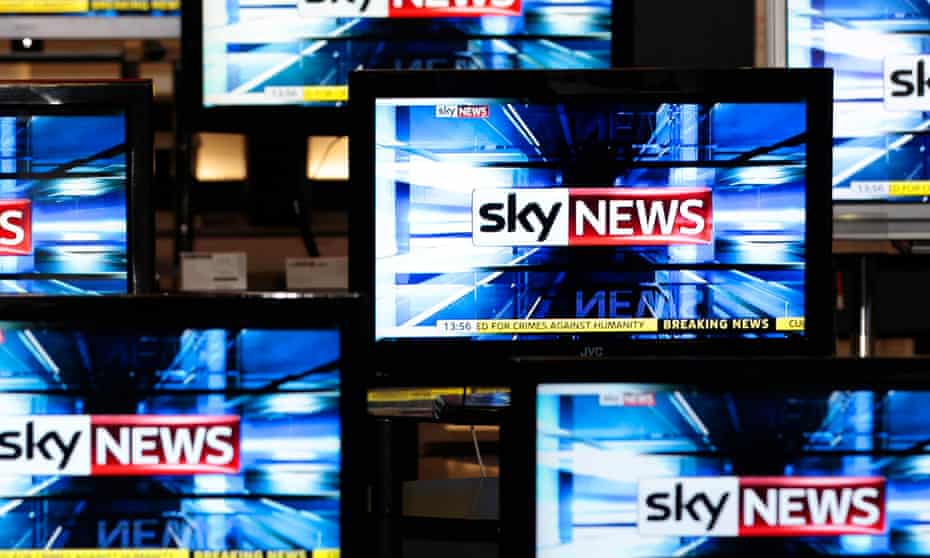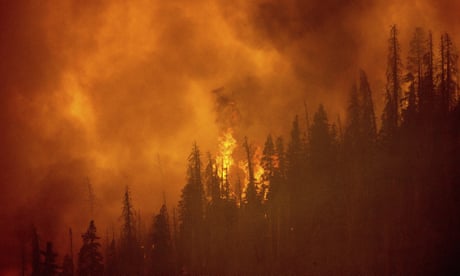Extract from The Guardian
Murdoch-owned channel creates and distributes content promoting climate scepticism across the world, analysis finds.

Tue 14 Jun 2022 03.30 AEST
Last modified on Tue 14 Jun 2022 03.31 AESTAn analysis of a global network of climate science deniers and “delayers” and the content they shared found the News Corp Australia-owned channel was a key “content hub” for “influencers, sceptics and outlets”.
The analysis, published by UK thinktank the Institute for Strategic Dialogue, said the Rupert Murdoch-owned Sky News Australia consistently ranked highly for traction, pushing the partisan views of its hosts and guests to a global audience through social media networks.
Sky News Australia said it rejected the findings of the report, saying it would “continue to encourage debate” on climate change in its programs.

The report looked at how views antagonistic to climate change action are spread around the world, how the content is created, and who is influential in spreading those views.
The report said: “Our analysis has shown how a small but dedicated community of actors boast disproportionate reach and engagement across social media, reaching millions of people worldwide and bolstered by legacy print, broadcast and radio outlets.”
It said Sky News Australia and contributors from News Corp’s stable of newspaper columnists had formed a “system of content production and distribution” that promoted “scepticism of climate science and fear or confusion around mitigation efforts”.
Chris Cooper, a director at Purpose, an Australia-based consultancy that works with organisations to understand their impact and which helped carry out analysis for the report, said: “Australia seems to have two significant export industries. One is emissions through fossil fuel exports and the other comes in content from these prolific media outlets.”
He said Sky News Australia was now having a “disproportionate contribution to global climate misinformation”. “We see the content shared through denier networks across the globe.”
Social media outlets were monetised through algorithms that prioritised “anything that’s outrageous and engaging”, Cooper said, and this meant climate misinformation was “reaching millions more people than it otherwise would”.
In one example, a tweet from Canadian climate science denier Patrick Moore – retweeted 16,000 times – promoted a Sky News Australia segment where former host Alan Jones described youth climate activists as “selfish, badly educated virtue-signalling little turds”.
Most segments, which are routinely edited into shareable videos, stem from Sky News Australia’s “after dark” shows.
Rita Panahi, a Sky News Australia host, is identified in the report as a “key amplifier” alongside other figures from around the world.
The analysis showed that before 2017, Sky News Australia posted an average 25 tweets a month on climate-related issues. But they now publish an average of more than 100 posts a month, with peaks of up to 300 a month.
Cooper said the aim of the report was to raise awareness of the scale of climate misinformation and disinformation worldwide, as well as the “actors behind it”.
Another aim, he said, was to detail to advocates for action on climate change how disinformation travels around the world.
“Nobody is against freedom of speech,” Cooper said. “But this is about the amplification and broadcast of what’s clearly disinformation, and that is the problem here.”
Rejecting the findings of the report, a Sky News Australia spokesperson said: “Sky News Australia airs a diverse range of views on the complex issues around climate, including the broadcast of a major documentary coinciding with the climate change conference in Glasgow that examined nuclear energy as a possible long-term solution to achieve net zero emissions by 2050.”
“We will continue to encourage debate on the varied and evolving climate-related policies of governments, business, scientists and campaign groups.”
The report identified the five most popular sources for content shared among “delayers”, which were the Daily Mail, the Guardian, the Daily Telegraph and the blog Whatsupwiththat.
The report said the Guardian was “anomalous within this section, in that the articles shared were not themselves misleading or warranting factchecks, but were nonetheless used to support opposition lines of attack by cherrypicking data or adopting a ‘culture wars’ frame”.
The report identified key “discourses of delay” used to undermine action on the climate crisis, particular in the lead up to and during the UN climate talks in Glasgow in 2021.
These included attacks on “unreliable renewables” or claimed ineffectiveness of electric vehicles. Other popular themes were to point to major emitters – often China – and use their high emissions to absolve other countries of the need to act, or to argue that advocates for climate action were wealthy elites and part of a “New World Order”.
More broadly, the report said that climate change denial and attacks on renewables often coexisted with anti-trans and anti-lockdown sentiments, as well as misinformation on the pandemic.
No comments:
Post a Comment